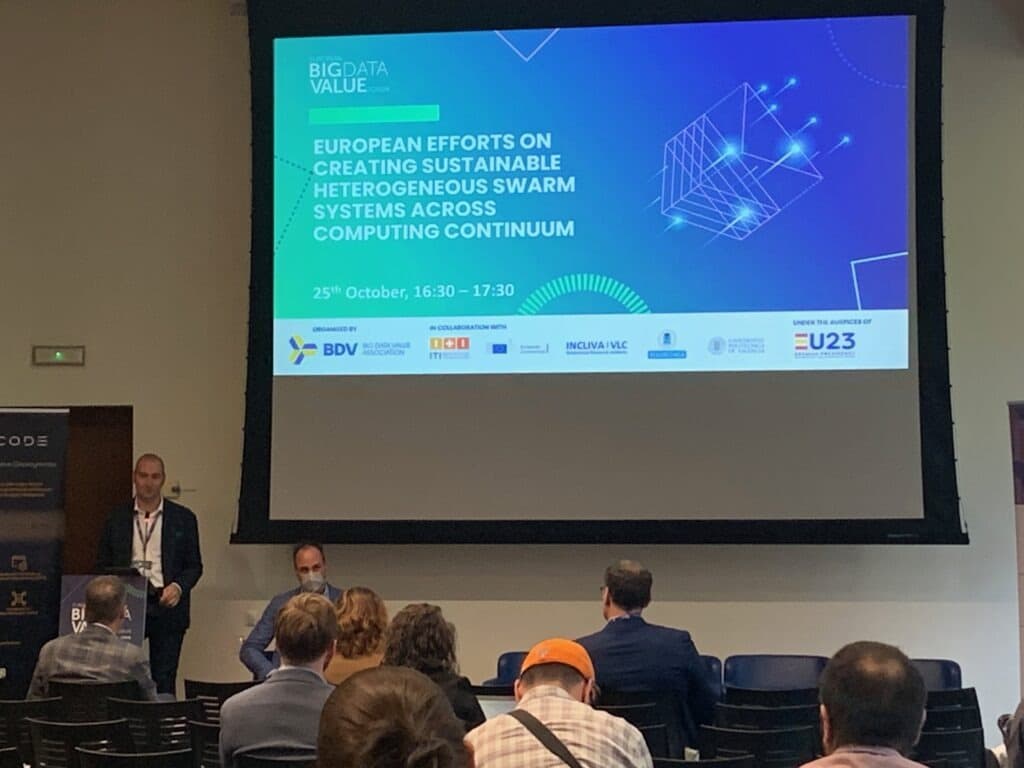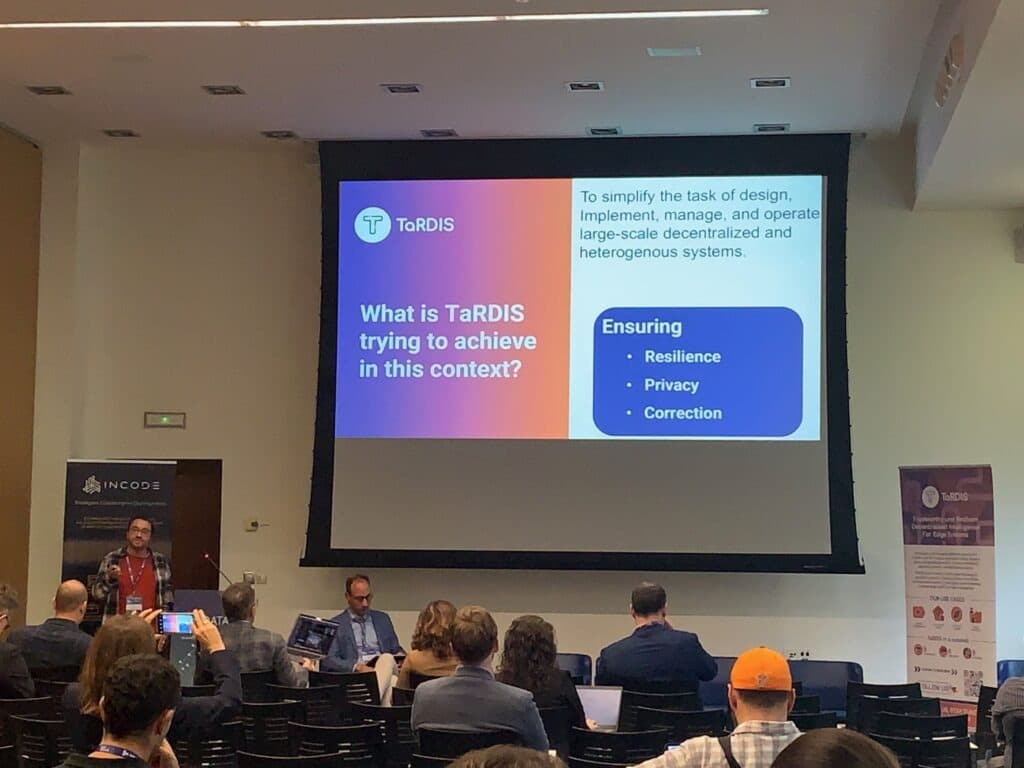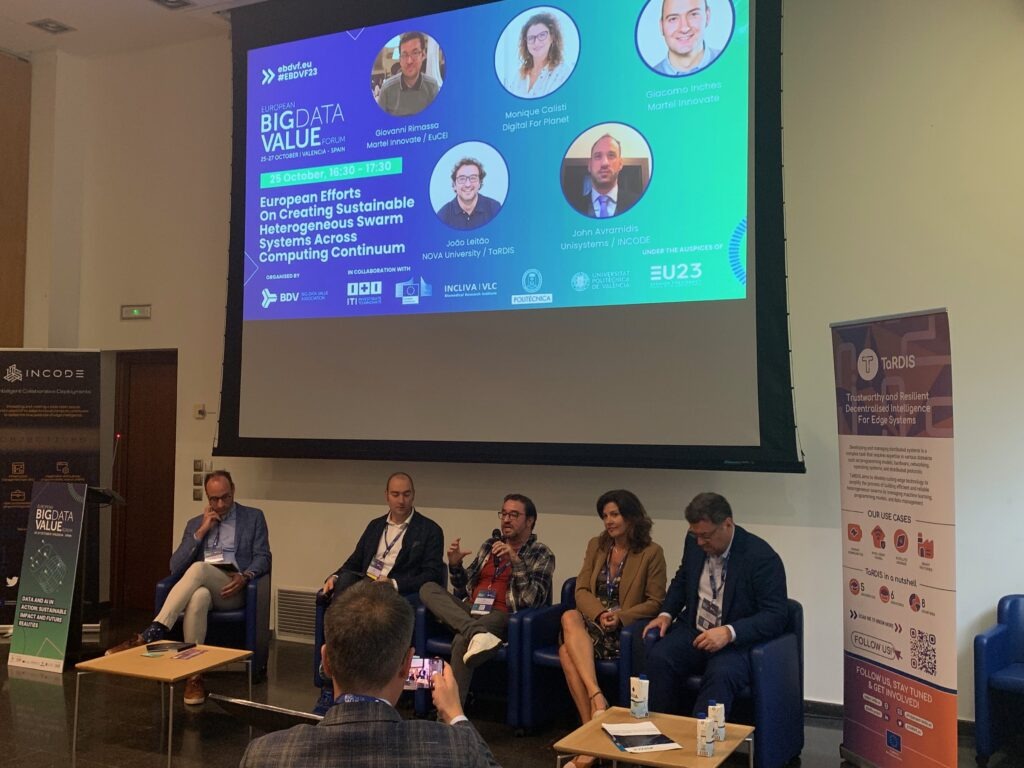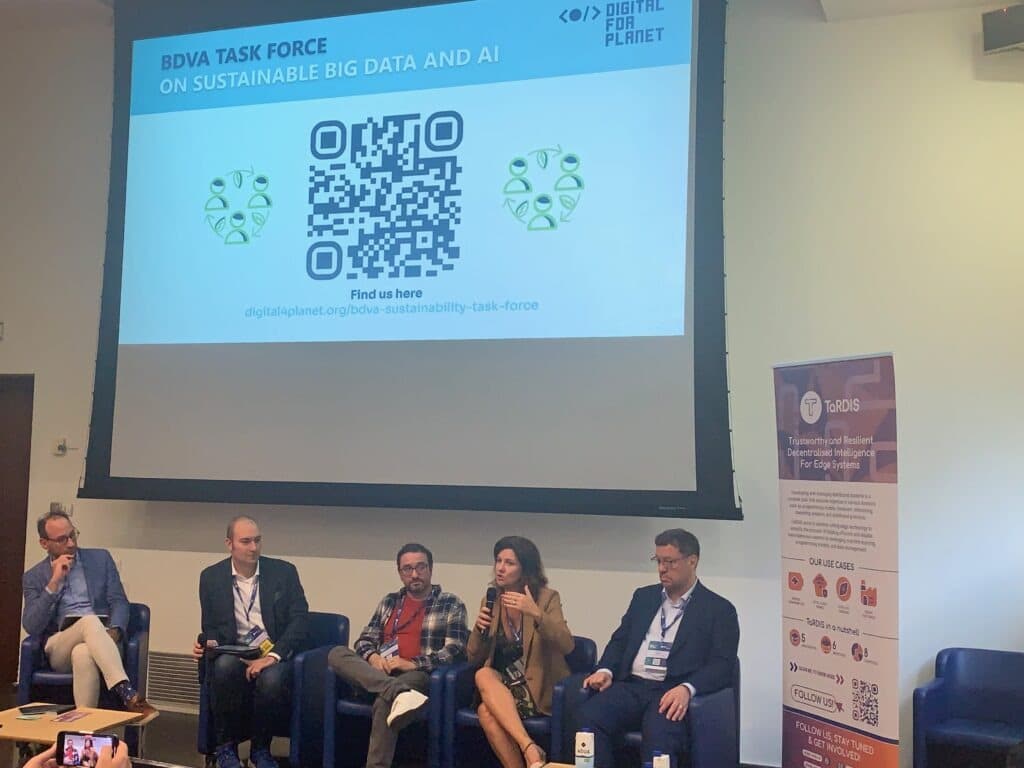During 25th – 27th Oct, 2023, we joined 600+ academics, industry professionals from private and public bodies in Valencia to participate in the 7th edition of the European Big Data Value Forum – #EBDVF2023. The event welcomes 200+ speakers participating in more than 50 sessions.
TaRDIS, together with INCODE, a Horizon Europe project answering to the “Swarm computing” call of the same cluster, jointly sponsored this esteemed event and co-organised a session that dove deep into the research and innovation in the field of swarm and decentralized computing in Europe. Dr. Joao Leitao, from the NOVA University Lisbon represented the TaRDIS project by giving an overview to the project as well as participating in the panel discussions.
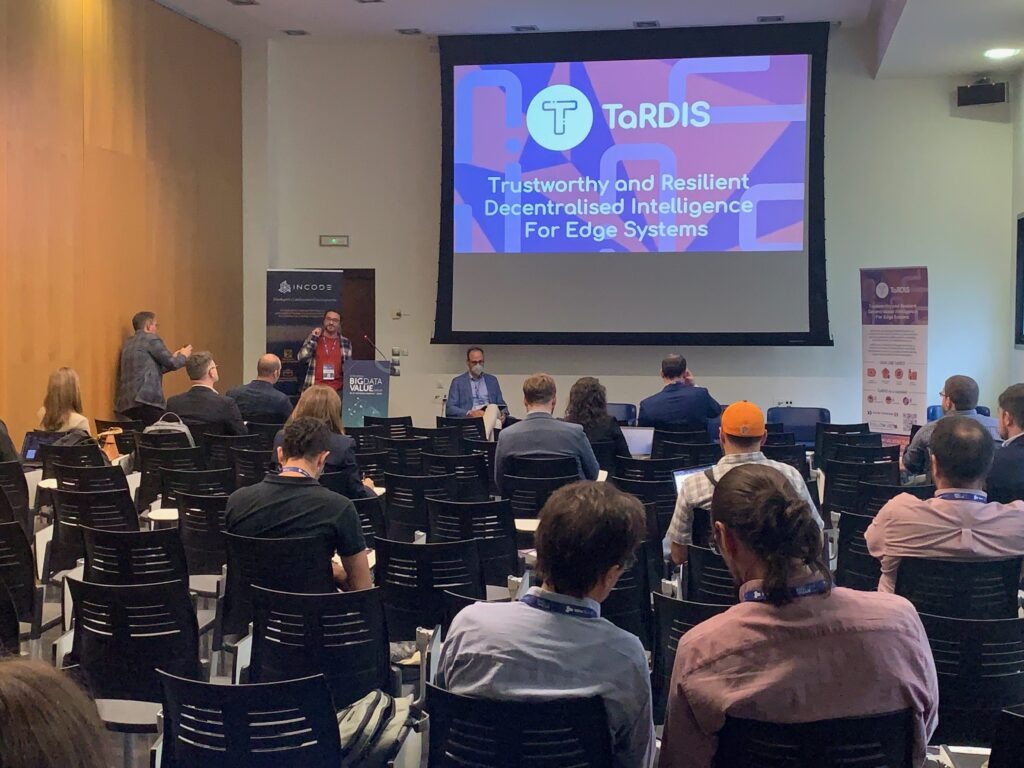
The session, “European efforts on creating sustainable heterogeneous swarm systems across computing continuum”, focussed on the understanding and development of the Cloud, Edge and IoT Continuum and supporting research and innovation initiatives to develop applications across the continuum, the paradigm also incorporates development of swarm and decentralized applications. In edge computing scenarios where there is a need for decentralized decision-making and coordination among edge devices, swarm computing principles can be applied; such a decentralized and self-organizing concept and architecture fit particularly well hyper-distributed, sovereignty-enabling, heterogeneous data management challenges, such as the ones found in European Data Spaces. Additionally, edge devices can act as agents in a swarm, collectively making decisions and adapting to changing conditions without relying on a central controller.
In this session, we will brought together 2 Horizon Europe projects answering to the swarm computing call and are addressing the ever-increasing complexities of developing correct and performant heterogeneous swarm systems.
The INCODE project enables an open and trusted cloud-native programming platform poised to tame the emerging dynamism of distributed and heterogeneous private edge infrastructures (seen as a combination of intelligent edge node and diverse types of smart IoT devices with processing capabilities over programmable data plane resources).
The TaRDIS project addresses the ever-increasing complexities of developing correct and performant heterogeneous swarms by providing a novel programming model, integrated development and analysis environment, and corresponding runtime support. TaRDIS proposes a language-independent event-driven programming model that allows developers to specify the behavior of different components in their distributed system as a collection of autonomous collaborative nodes.
In this panel discussion, the experts from the projects and initiatives discussed the challenges faced in the early stages of development of the architecture, how to align the market needs, the support from the Cloud Edge IoT community in bringing together experts from different domains and helping find solutions to the research problems. What is the role of sustainability in these research and innovation projects and how the topic of sustainability is being addressed at the core of the architecture and development of these technology platforms.
We are thankful to the speakers/panelists of the session for their valuable inputs and insights.
- Dr. Giovanni Rimassa, CIO Martel Innovate, representing the EuCEI initiative
- Dr. Monique Calisti, President Digital for Planet
- Dr. Joao Leitao, NOVA University Lisbon, representing project TaRDIS
- John Avramidis, Unisystems, representing project INCODE
- Dr. Giacomo Inches, Martel Innovate for moderating the session
Below are some glimpses from the session.

